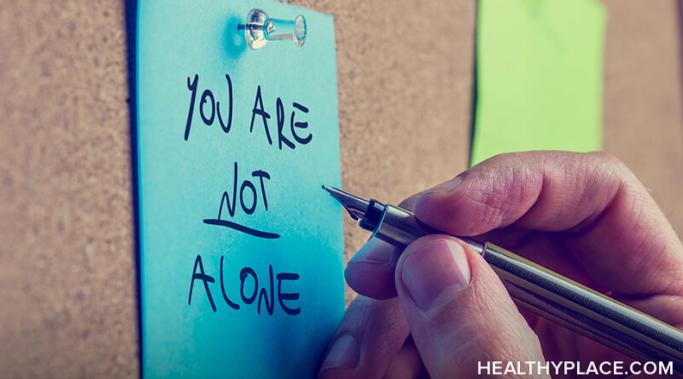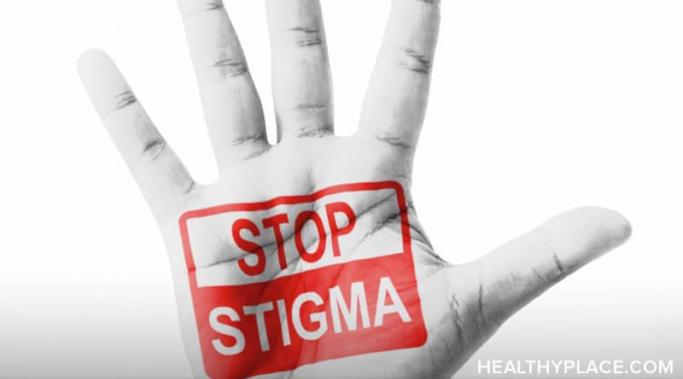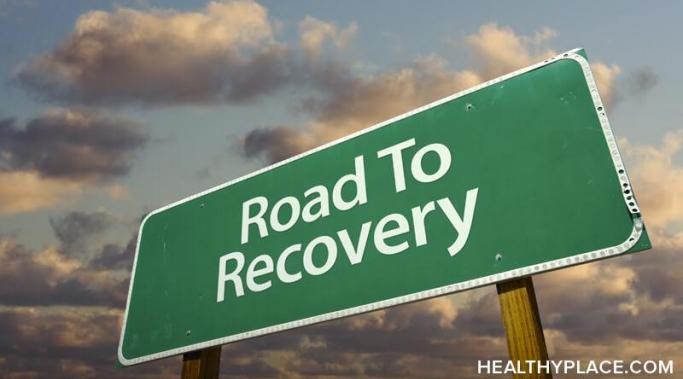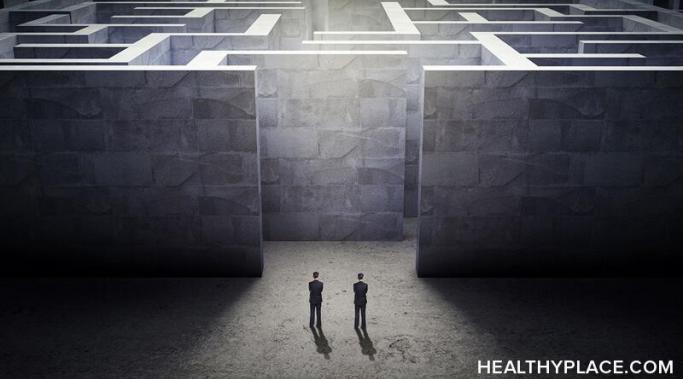There are truths about dissociative identity disorder (DID) and me that I want you to know. I have held back sharing them with you, not because I am ashamed, but because I did not want to dishearten or discourage you about your own journey to wellbeing. Since I began writing for HealthyPlace, I've shared my stories of strength, courage, and hope as someone living with dissociative identity disorder. However, I must admit there is one story, one truth, I have not shared. (Note: This post contains a trigger warning.)
Impact of DID Diagnosis
The time to talk about suicide and dissociative identity disorder (DID) is now. According to the American Foundation for Suicide Prevention, suicide is the 10th leading cause of death in adults. For those with dissociative identity disorder (DID), the Cleveland Clinic asserts that 70 percent of sufferers, more than any other mental health condition, have tried to die by suicide. Discussion of suicidality is no longer optional. It is imperative that we end its stigma and discuss it now. There are 12 coping strategies and skills you can use to help those who are suffering and wanting to die by suicide. What specifically can those with DID do to help themselves and their headmates cope with the overwhelming desire to end their pain? (Note: This post contains a trigger warning.)
Intimacy can be such a tabooed and feared topic, especially for those of us with dissociative identity disorder (DID) who have been subjected to years of prolonged abuse and unwanted touch. The very idea of intimacy denotes something very private, closely personal, and not prone to discussion. However, if true healing is to be obtained, those with dissociative identity disorder must discuss concerns of intimacy, closeness, and vulnerability in order to help heal and to have his or her needs met in their relationships.
A dissociative identity disorder (DID) diagnosis is never easy to handle, even as the years pass. The diagnosis is just the beginning of a very long journey. There's going to therapy, finding medication that helps, trying to work with your system, learning to manage your dissociation and then even more therapy. Managing your DID isn't easy, but it does get more manageable over time. It's been three years since I received my DID diagnosis, and a lot has changed.
I'm not dangerous, although some people think people with mental health disorders are dangerous -- especially, it seems, when it comes to dissociative identity disorder (DID). A diagnosis of DID can bring about a lot of changes. The person can feel different, sometimes better, knowing that they have a diagnosis, and sometimes worse, knowing that the diagnosis is not an easy one. Treatment can include a variety of medications and really difficult, intense therapy. Then there are the changes that you experience from people on the outside, some of whom don't believe I'm not dangerous. While many people are supportive, there is no denying that a DID diagnosis comes with a tremendous stigma that can change a person's life forever.
Alter switching and dissociative identity disorder (DID) are interdependent. The term "'switching" means simply to change, but, in reference to DID, it means to change a part, an alter, or a headmate, as they are called. Everyone has parts that comprise his or her personality. You might have remarked before, "Part of me really wants to improve my health." For someone to reference a single part of their personality is normal, but for those of us with DID, we experience more extreme parts of ourselves that have their own thoughts, opinions, beliefs, wishes, needs, etc. The switching of these parts is difficult, jarring, and disconcerting. If you have DID or know someone with DID, it is important to understand the signs of when someone with dissociative identity disorder is switching alters and what you can do.
Do we need to remember and process all traumatic memories in order to heal from dissociative identity disorder (DID)? When it comes to the complicated disorder of DID, there frequently are more questions than there are answers, and the explanation of the above question is no less difficult. Before I provide an answer, it is important to understand the way our emotional traumatic memories work and what it actually means to process and heal from them.
There are positive effects of dissociative identity disorder. There. I said it.
After my dissociative identity disorder (DID) diagnosis, I had to accept that it doesn't go away. There's no medication to cure it and no therapy that works 100% of the time. DID is manageable with treatment, but even then, the DID diagnosis stays with you. It has been two years since my DID diagnosis, and I am still struggling. But does DID get easier as time passes?
There can be a lot of unknowns in dissociative identity disorder (DID), including what parts make up your DID system. While some people with DID seem to know everything about their alters, there are others with who don't even know how many parts they have. It can be frustrating when you don't have all the answers, but it's okay not to know everything. You can still live, and you can still heal, even when your DID system parts are unknown.









